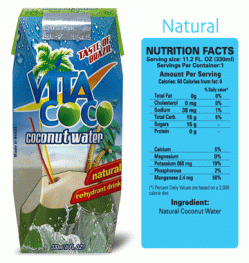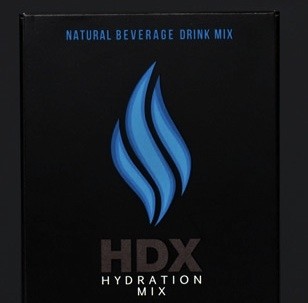Madonna backed coconut water Vita Coco faces new 'super hydrating' legal challenge

On February 28, law firm Consumer Law Group (CLG) filed a motion bringing of a class action against Vita Coco (All Market Inc) in the Superior Court of the Province of Quebec, District of Montreal.
Petitioner G. Del Zoppo said he wished to institute a class action on behalf of all Canadian residents who had bought Vita Coco coconut water – backed by popstar Madonna as an investor, while fellow chanteuse Rihanna holds a 1% company share – with refunds and punitive damages claimed.
“As a direct result of the respondent’s unlawful and deceptive sales practices, Vita Coco has become one of the fastest-growing lifestyle brands in the world, with a cult-like brand loyalty," the CLG motion said.
Class actions ‘bigger business’ than coconut water
According to a 2012 report from New Nutrition Business, the firm has a 62% share of a lucrative US coconut water market worth around $200m, a staggering 400% increase in size since early 2010.
On February 8 2012, Vita Coco settled a similar US class action, filed in August 2011, for $10m (€7.5m) and agreed to change labeling and advertising.
Vita Coco co-founder Michael Kirban said at the time that he felt the US settlement was in the best interests of consumers and the firm,“although we had strong legal and factual defenses to the plaintiff’s claims”.
Kirban added: “Vita Coco is the largest brand in the hottest beverage category, coconut water, so attracting scrutiny was inevitable. Class action suits are doing bigger business than coconut water in the US, that’s for sure.”
But CLG accused New York-based brand Vita Coco of making “false and materially misleading” representations. It said the firm's products were no more hydrating that a standard sports drinks, and that its “misrepresentations and omissions” allowed it to charge premium prices.
Super hydration claims mislead?
Vita Coco positioned products as a "super hydrating" beverage, with labelling claiming “more electrolytes than the leading sports drink with 15 times the potassium”, claims that were false and materially misleading, according to CLG.
“By using such false and misleading terms as ‘super hydrating’, ‘mega electrolyte’, and telling consumers that Vita Coco Products are the superior drink for hydration, [the] respondent is actively and superficially misrepresenting to consumers the true hydrating benefits associated with Vita Coco products.”
CLG cited an unreferenced ‘independent’ study (conducted by controversial health and nutritional product testing firm Consumer Lab), comparing coconut water to plain water and a dedicated rehydration drink.
The motion quotes from this study: “Rehydration drinks like Gatorade typically contain 110mg of sodium per 8oz (240ml) serving, but coconut waters made from pure coconut water…contain about 40mg-60mg of sodium in a slightly larger serving (330ml).”
Thus, while Vita Coco told consumers that its products contained more electrolytes than sports drinks, they actually offered far less sodium, the motion stated.
Del Zoppo also quoted Liz Applegate, director of sports nutrition at UC-Davis, to the extent that coconut water was ill-suited for prolonged exercise bouts, with sodium replacement more important than potassium, with higher levels lost when one sweats.
Laxative effects
Other complaints include Vita Coco’s alleged failure to disclose low protein levels (and thus lack of suitability for exercise recovery) and the mild laxative effect of large amounts of coconut water, which CLG said “would obviously make it less effective at replenishing fluids in the long run”.
Moreover, according to the motion, the Consumer Lab study also showed that a Vita Coco sample product fell (in the CLG's words) "woefully short of the electrolyte levels stated on its nutrition label”.
Against a Canadian nutrition label promising: sodium 30mg; potassium 515mg; magnesium 32mg per 250ml serving, a test showed only 18mg of sodium, 432.6mg potassium and 20.8mg magnesium.
Given these “serious discrepancies”, the petitioner said they indicated either an absence of quality controls on Vita Coco’s part or packaging or preservative use that degraded nutritional contents.












